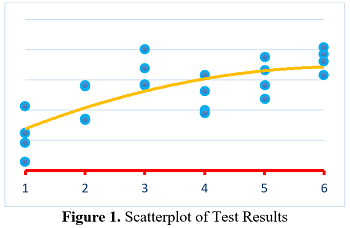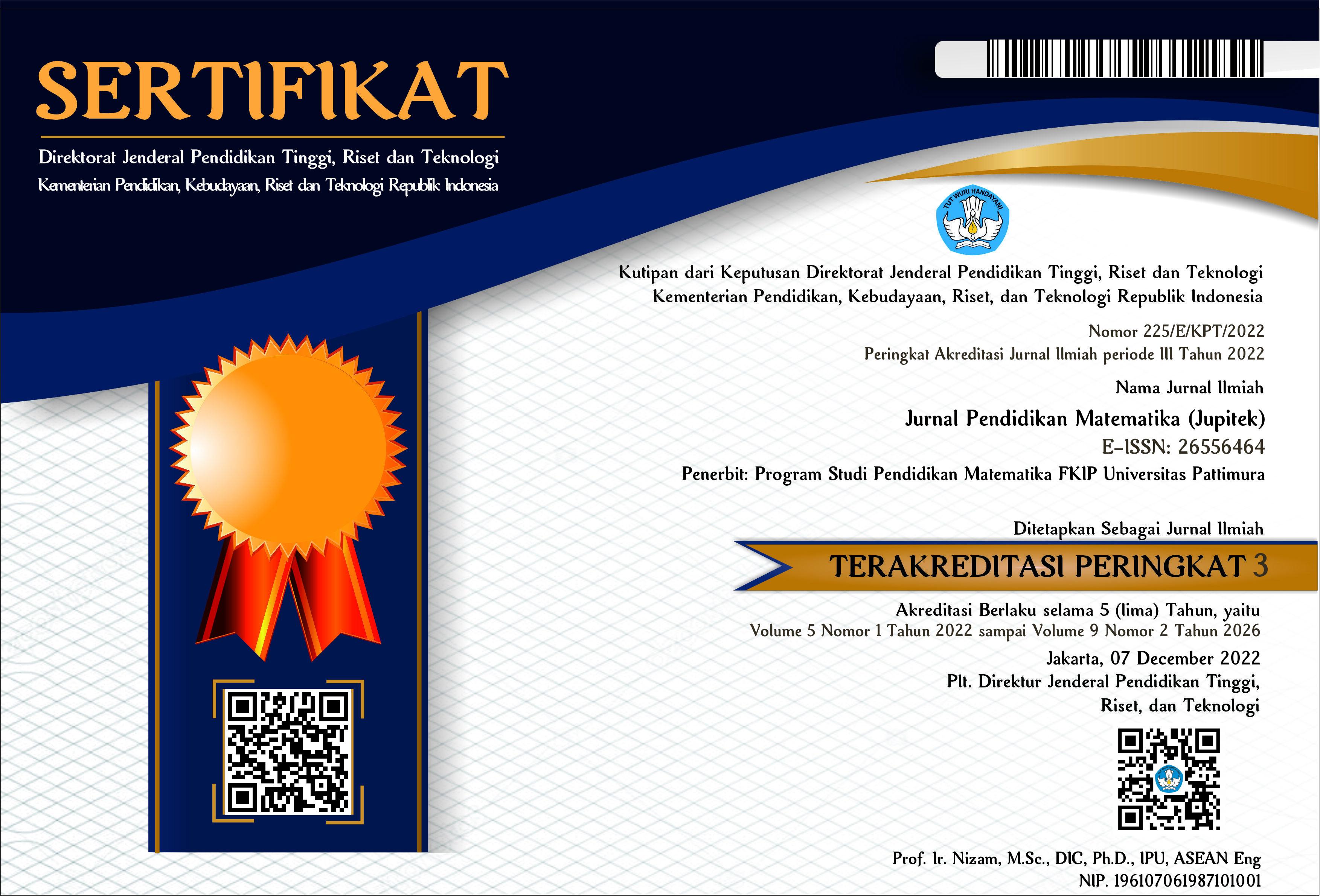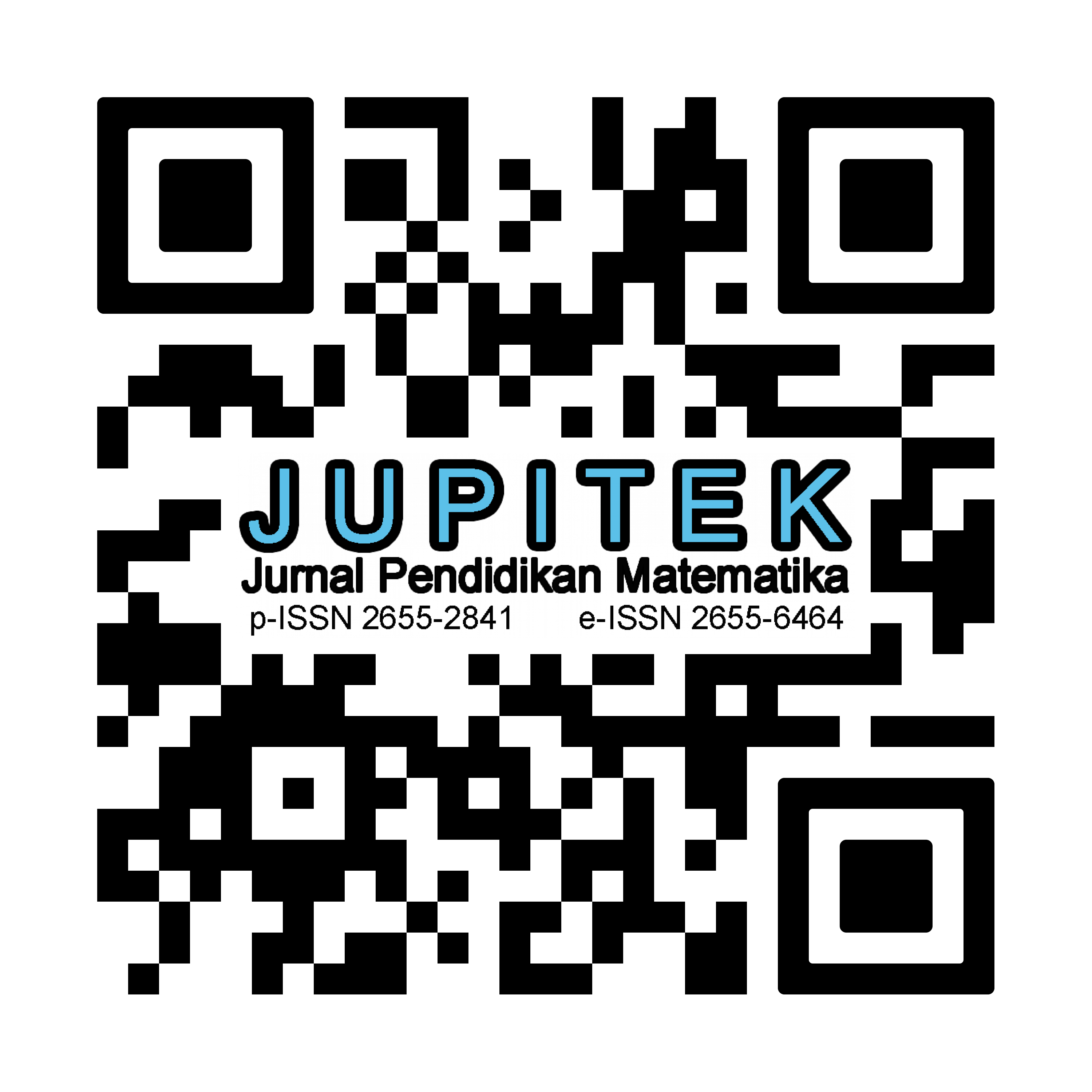ANALYSIS OF STUDENTS’ MATHEMATICAL COMMUNICATION ABILITY BASED ON SELF-CONFIDENCE AND COGNITIVE STYLE
Abstract
Self-confidence and cognitive style are important variables that influence the behavior of students in the academic field, the continued development of academic abilities, how learning is carried out, and how they interact in classroom activities. Learning activities will be expected more effective because all of the learning steps going to be attractive and get to reach the learning achievements if students have good self-confidence. So, all of these things are related to mathematical communication ability. The data on students' mathematical communication ability scores that were influenced by two factors, the level of self-confidence and different cognitive styles, were analyzed by the experimental design carried out in this research was a 3x2 Completely Randomized Factorial Design. The observation data were analyzed statistically with the F-test at a significance level of 5%. From the test of between-subjects effects, the output data was on the ANOVA table. We can get the conclusion that there was factors interaction which can be seen by p-value (Sig.) < α = 0.05, which means rejected H0. There was an effect of interaction between self-confidence with cognitive style significantly to mathematical communication ability
Downloads
References
Azmi, S., Hayati, L., Hapipi, H., & Triutami, T. W. (2021). Pengembangan Instrumen Tes untuk Meningkatkan Kemampuan Komunikasi Matematis Mahasiswa. Jurnal Pijar Mipa, 16(2), 163-169.
Cavalloro, R. (2021). Integrated Pest Control in Viticulture. CRC Press.
Chasanah, C., & Usodo, B. (2020). The Effectiveness of Learning Models on Written Mathematical Communication Skills Viewed from Students' Cognitive Styles. European Journal of Educational Research, 9(3), 979-994.
Chen, C. (2021). A study on the relationship between reflective-impulsive cognitive styles and oral proficiency of EFL learners. Theory and Practice in Language Studies, 11(7), 836-841.
Dean, A., Morris, M., Stufken, J., & Bingham, D. (2015). Handbook of Design and Analysis of Experiments. CRC Press.
Dewi, P. S. I. Y., Kurniati, N., & Wahidaturrahmi, W. (2021). Pengaruh Kepercayaan Diri dan Kemampuan Komunikasi Matematika Terhadap Hasil Belajar Matematika Siswa. Griya Journal of Mathematics Education and Application, 1(2), 122-131.
Erayani, F. N., Sridana, N., Arjudin, A., & Baidowi, B. (2022). Hubungan Kepercayaan Diri dan Kemampuan Komunikasi Matematis dengan Hasil Belajar Matematika. Jurnal Ilmiah Profesi Pendidikan, 7(3c), 1875-1884.
Fadiana, M. (2016). Perbedaan kemampuan menyelesaikan soal cerita antara siswa bergaya kognitif reflektif dan impulsif. Journal of research and Advances in Mathematics Education, 1(1), 79-89.
Fan, J. (2020). Thinking Styles: Identity, Value, and Malleability. Cambridge Scholars Publisher.
Farman, F., & Samsiah, S. (2023). SELF-EFFICACY AND SELF-ESTEEM AGAINST MATHEMATICAL COMMUNICATION ABILITY. Jurnal Pendidikan Matematika (JUPITEK), 6(1), 55-61.
Faturohman, I., Iswara, E., & Gozali, S. M. (2022). Self-Confidence Matematika Siswa dalam Penerapan Pembelajaran Online. Mosharafa: Jurnal Pendidikan Matematika, 11(1), 85-94.
Fulantelli, G., Burgos, D., Casalino, G., Cimitile, M., Bosco, G. L., & Taibi, D. (2023). Higher Education Learning Methodologies and Technologies Online: 4th International Conference, HELMeTO 2022, Palermo, Italy, September 21–23, 2022, Revised Selected Papers. Springer Nature Switzerland.
Gordah, E. K., & Astuti, R. (2013). Meningkatkan Kemampuan Komunikasi Matematis Mahasiswa Melalui Pengembangan Bahan Ajar Geometri Dasar Berbasis Model Reciprocal Teaching di STKIP PGRI Pontianak. Makalah disajikan pada Seminar Nasional Matematika dan Pendidikan Matematika, Universitas Negeri Yogyakarta,
Hidayat, A. A. (2021). Menyusun Instrumen Penelitian & Uji Validitas-Reliabilitas. Health Books Publishing.
Hodiyanto, H. (2017). Kemampuan komunikasi matematis dalam pembelajaran matematika. AdMathEdu, 7(1), 9-18.
Kansil, V. E., Tuna, J. R., & Liando, N. V. (2022). ANALYSIS OF THE EFFECT OF STUDENTS’SELF-CONFIDENCE ON SPEAKING SKILL. JoTELL: Journal of Teaching English, Linguistics, and Literature, 1(5), 653-675.
Lar, M. A. A., & Maulina, M. (2021). STUDENTS’SELF-CONFIDENCE IN SPEAKING FOR A LIVE PRESENTATION: A LITERATURE REVIEW. Klasikal: Journal of Education, Language Teaching and Science, 3(3), 88-95.
Lehmann, E. L., & Romano, J. P. (2022). Testing Statistical Hypotheses. Springer International Publishing.
Leppink, J. (2019). Statistical Methods for Experimental Research in Education and Psychology. Springer International Publishing.
Lestari, K. E., & Yudhanegara, M. R. (2017). Penelitian pendidikan matematika (Anna (ed.). Bandung: PT Refika Aditama.
Maftuna, A. (2020). Self-confidence in oral performance. Бюллетень науки и практики, 6(4), 444-452.
Malaya, Y., Sridana, N., Hapipi, H., & Prayitno, S. (2021). Analisis kemampuan komunikasi matematis tertulis dalam menyelesaikan masalah matematika ditinjau dari gaya kognitif siswa kelas VIII SMP. Griya Journal of Mathematics Education and Application, 1(3), 442-447.
Maulyda, M. A., Rosyidah, A. N. K., & Hidayati, V. R. (2022). Elementary school students’ mathematical connection in problem-posing activities. Jurnal Elemen, 8(1), 99-116.
Noviyana, I. N., Dewi, N. R., & Rochmad, R. (2019). Analisis Kemampuan Komunikasi Matematis Siswa Ditinjau dari Self-Confidence. PRISMA, Prosiding Seminar Nasional Matematika,
Qin, X. (2021). Evaluation of English intercultural communication ability based on machine learning and fuzzy mathematics. Journal of Intelligent & Fuzzy Systems, 40(4), 7259-7271.
Rachmayani, D. (2014). Penerapan Pembelajaran Reciprocal Teaching untuk meningkatkan kemampuan komunikasi matematis dan kemandirian belajar matematika siswa. JUDIKA (Jurnal Pendidikan Unsika), 2(1).
Rahmatina, S., Sumarmo, U., & Johar, R. (2014). Tingkat berpikir kreatif siswa dalam menyelesaikan masalah matematika berdasarkan gaya kognitif reflektif dan impulsif. Jurnal Didaktik Matematika, 1(1).
Riding, R., & Rayner, S. (2013). Cognitive styles and learning strategies: Understanding style differences in learning and behavior. Routledge.
Slameto. (2015). Belajar dan Faktor-faktor yang Mempengaruhinya. Rineka Cipta.
Tong, D. H., Uyen, B. P., & Quoc, N. V. A. (2021). The improvement of 10th students' mathematical communication skills through learning ellipse topics. Heliyon, 7(11).
Umah, U. (2020). Comparison of Students' Covariational Reasoning Based on Differences in Field-Dependent and Field-Independent Cognitive Style. NUMERICAL: Jurnal Matematika Dan Pendidikan Matematika, 41-54.
Viator, R. E., Harp, N. L., Rinaldo, S. B., & Marquardt, B. B. (2020). The mediating effect of reflective-analytic cognitive style on rational thought. Thinking & Reasoning, 26(3), 381-413.

Copyright (c) 2024 Jarot Aji Baskoro, Turmudi Turmudi, Sumanang Muhtar Gozali

This work is licensed under a Creative Commons Attribution-NonCommercial-ShareAlike 4.0 International License.
License and Copyright Agreement
By submitting a manuscript to Jurnal Pendidikan Matematika (JUPITEK), the author(s) certify and agree to the following terms:
- Originality and Authority: The submitting author is authorized by all co-authors to enter into this agreement. The manuscript describes original work that has not been published previously in a peer-reviewed journal, nor is it under consideration for publication elsewhere.
- Approval: Its publication has been approved by all author(s) and by the responsible authorities of the institutions where the work was carried out.
- Rights: The authors secure the right to reproduce any material that has already been published or copyrighted elsewhere.
- Licensing and Copyright: Authors retain the copyright to their work.
- License Grant: The authors grant Jurnal Pendidikan Matematika (JUPITEK) the right of first publication, with the work simultaneously licensed under the Creative Commons Attribution-NonCommercial-ShareAlike 4.0 International (CC BY-NC-SA 4.0).
- Self-Archiving: Authors are permitted and encouraged to deposit the published version of their article in institutional repositories, on their personal websites, and other academic platforms, with proper acknowledgment of its initial publication in Jurnal Pendidikan Matematika (JUPITEK).





.png)


